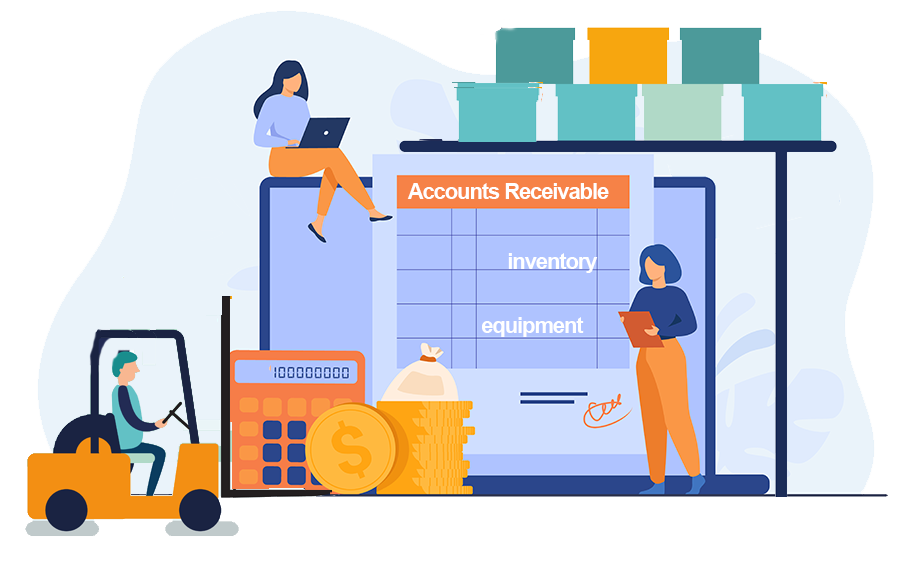BLOG
Raising Working Capital in a Recession with Asset-Based Financing
Why ABF makes sense for businesses interested in raising working capital in a recession.


Matthew Bjonerud
Founder & CEO
Recessions are hard on everybody–spending lags, sales shrink, businesses struggle, and nervous banks often stiffen loan requirements. Imagine you are the CEO of a mid-sized business when a recession is looming. You’ve worked hard to build your business, but a lack of raising working capital in a recession can threaten success during an economic downturn.
You need cash flow to stay afloat, but like many businesses during hard times, there’s little chance your financials will qualify you for a commercial bank loan. Even if you do have a current commercial bank loan, when your earnings are stressed, it is more likely that your loan covenants get tripped. Your bank may tell you to find another lender–usually on short notice.
Now for some good news. Despite being cash-poor, if your business is asset-rich with machinery, equipment, inventory, receivables, or real estate, you have a great option–asset-based financing (ABF).
Here are five reasons asset-based lending can provide a lifeline for your business, particularly during difficult economic times.
What is Asset-Based Financing?
Asset-based financing involves using the value of your business’s assets as collateral rather than your cash flow to obtain capital. This type of financing is based on the determined value of held assets such as accounts receivable, machinery, equipment, inventory, or owner-occupied real estate.
Asset-based financing typically is more flexible with fewer covenants, allows for more money to be borrowed, and processes faster than commercial bank cash-flow loans. Also, asset-based financing usually includes ongoing reporting requirements, mandating the submission of periodic asset reports to confirm value maintenance.
Why an Asset-Based Loan Makes Sense when Raising Working Capital in a Recession:
Here are five reasons why asset-based financing is your best option during a recession or when a recession is looming:
1. Faster approval and funding
Approval time for an asset-based loan is usually much faster than a traditional cash-flow loan. The underwriting process is significantly less complex, so funding is generally quicker.
Asset-based loans don’t have parameters fluctuating around economic conditions. This type of financing has few requirements, and loans can be structured to fit your business’s needs.
Traditional commercial bank loans have rigid requirements such as debt divided by EBITDA (earnings before interest, taxes, depreciation, amortization), EBITDA margin, and operating cash flow which isn’t generally necessary for asset-based financing. Typically, to qualify for an asset-based loan, you need assets with a stable positive value, low depreciation rate, and easy cash conversion.
2. Flexibility
Asset-based loans place fewer restrictions on the use of credit, and this can be critical during the uncertainty of a recession. Borrowers can spend money where it’s most needed to keep the business afloat.
Many traditional cash-flow loans have strict guidelines on leverage and debt service coverage requirements in the covenant. A covenant violation can result in increased interest rates or reduced credit availability. Also, asset-based loans only require a minimum of liquidity for cash-strapped businesses during a recession.
3. Access to more capital
Debt capacity (the amount your business can borrow) can be higher for asset-based loans than cash-flow loans. Even if your business can meet traditional cash-flow loan requirements, the amount of capital will often be less than what’s available when assets back the debt.
Cash-flow loans are based on your business’s income metrics, which can drop during a recession. In addition, since asset value secures asset-based funding, more credit can become available to the borrower if assets appreciate.
Try our Debt Capacity Calculator to learn how much your business can borrow now.
4. Put assets to use
Recessions can mean cash is scarce, but businesses still have other available assets. Even if equipment sits idle and inventory backs up during an economic downturn, it can still serve the business as a means of acquiring working capital.
5. Beneficial for lenders
Recessions are hard on lenders too. During economic downturns, lenders are just as worried about receiving payments as struggling businesses are about paying their debts. With asset-based loans, lenders can rest easy knowing that no matter how much the economy dips, there’s a valuable asset available to cover their risk.
Asset-Backed Loans are a Win during Economic Downturns
Remember that CEO who needed working capital but couldn’t get it through a commercial cash-flow loan? ABF could be the perfect solution to their problem.
As recessions come and go, savvy business leaders and lenders will look to the availability and flexibility of asset-based financing as a solution during economic downturns. Asset-based financing is truly a win for both borrowers and lenders, providing a viable option to help both sides achieve financial objectives and remain competitive during unstable and challenging economic times.
Cerebro Capital is helping democratize access to debt capital for mid-sized companies. We work with thousands of borrowers connecting them to lenders from over 2,200 lending institutions to provide credit and loans up to $100 million.
It only takes a few minutes to find your perfect lender matches.
Ready to get started?
Join the thousands of mid-sized companies who have used Cerebro.
Related Content

The world of middle-market lending has changed. Before COVID-19, traditional lenders showed flexibility as they worked to expand their books of business.

Increase the Chances of Closing a Loan
Significant disruptions to the lending landscape in the past four months have left corporate borrowers scrambling to stay on top of changing requirements

CFOs need to be constantly aware of how their company’s financial performance and market shifts affect its debt capacity, which is the best measure of your business’ ability to borrow.
- info@cerebrocapital.com
-
12 W Madison St.
Baltimore, MD 21201 - Cerebro Capital
- @cerebrocapital




